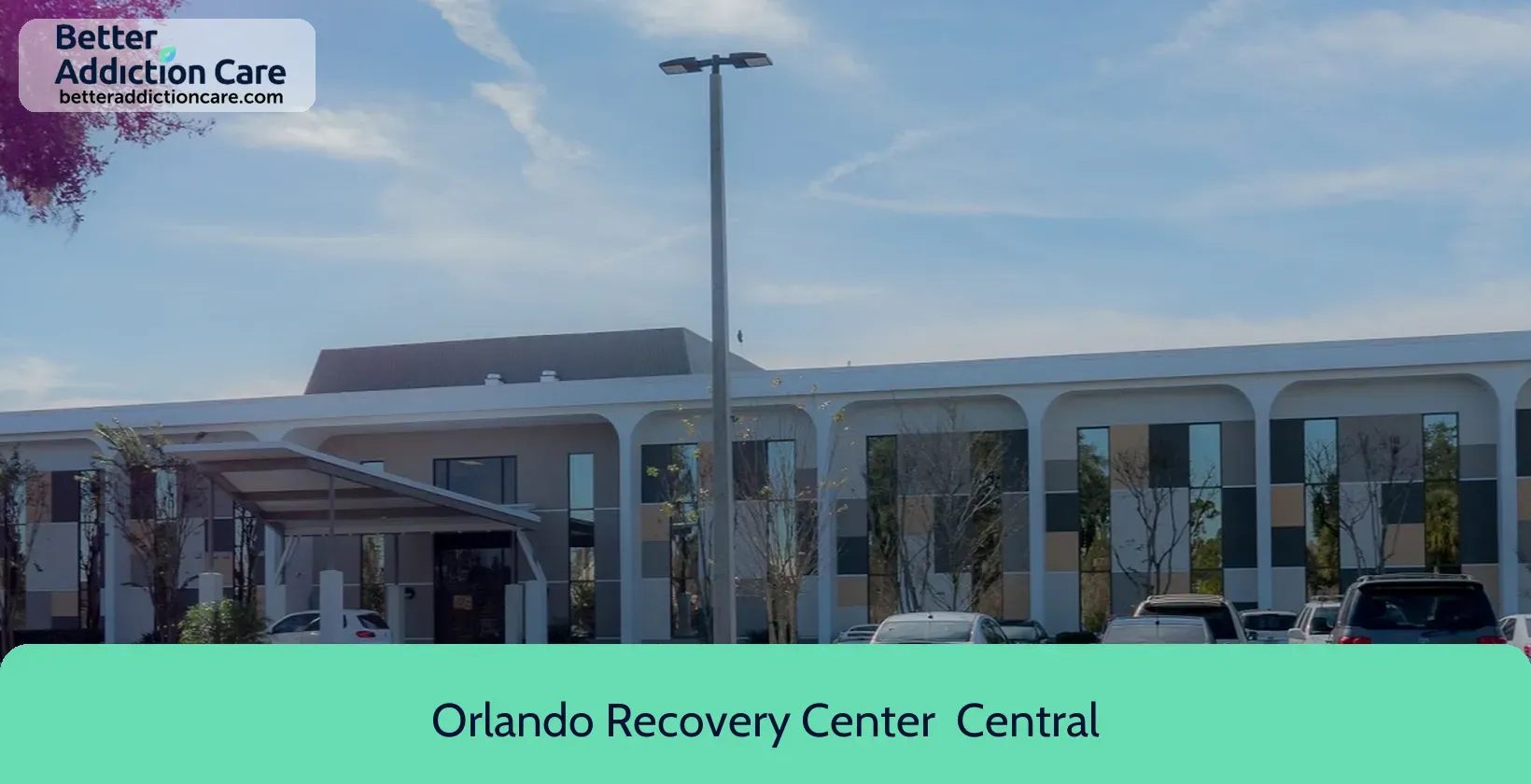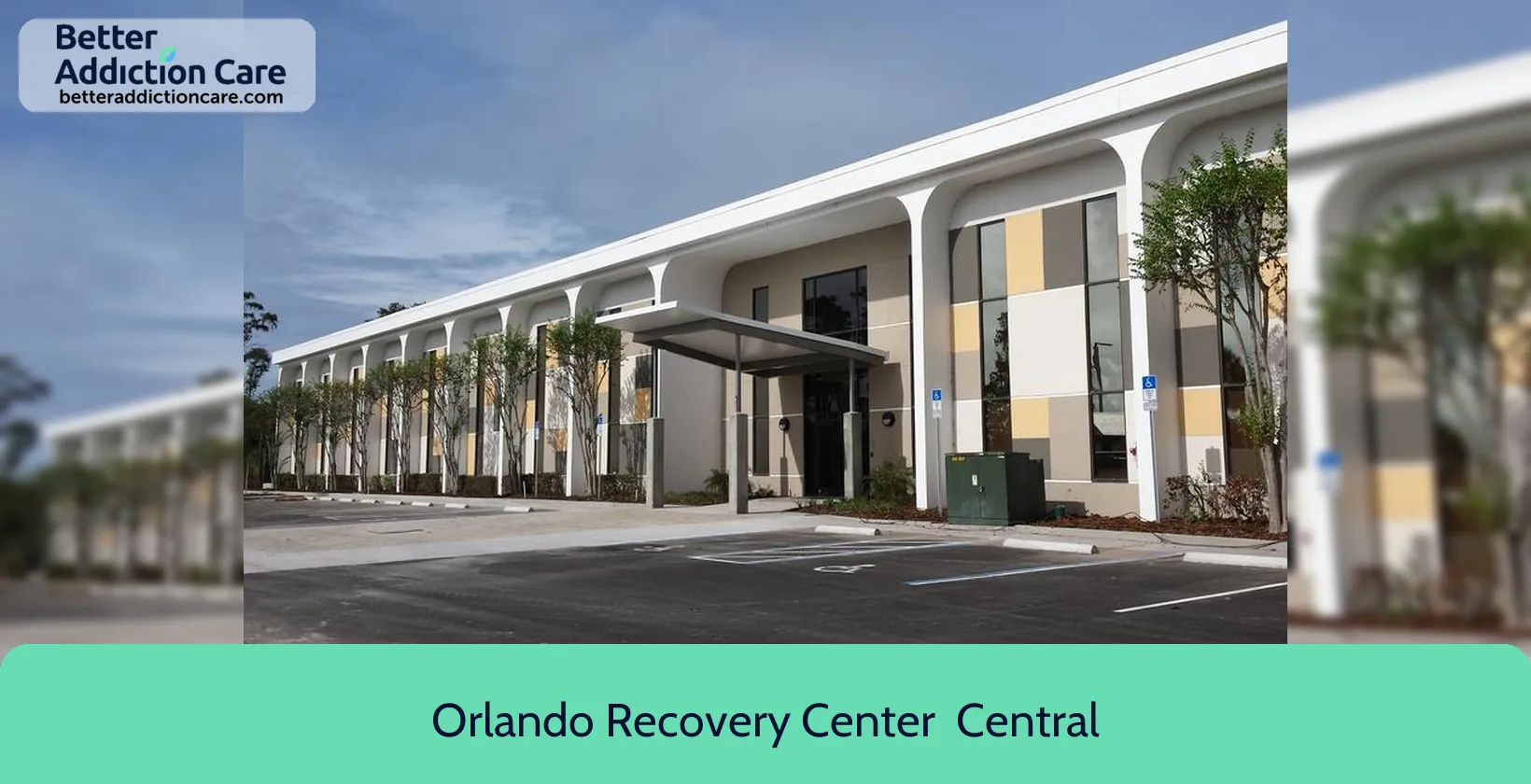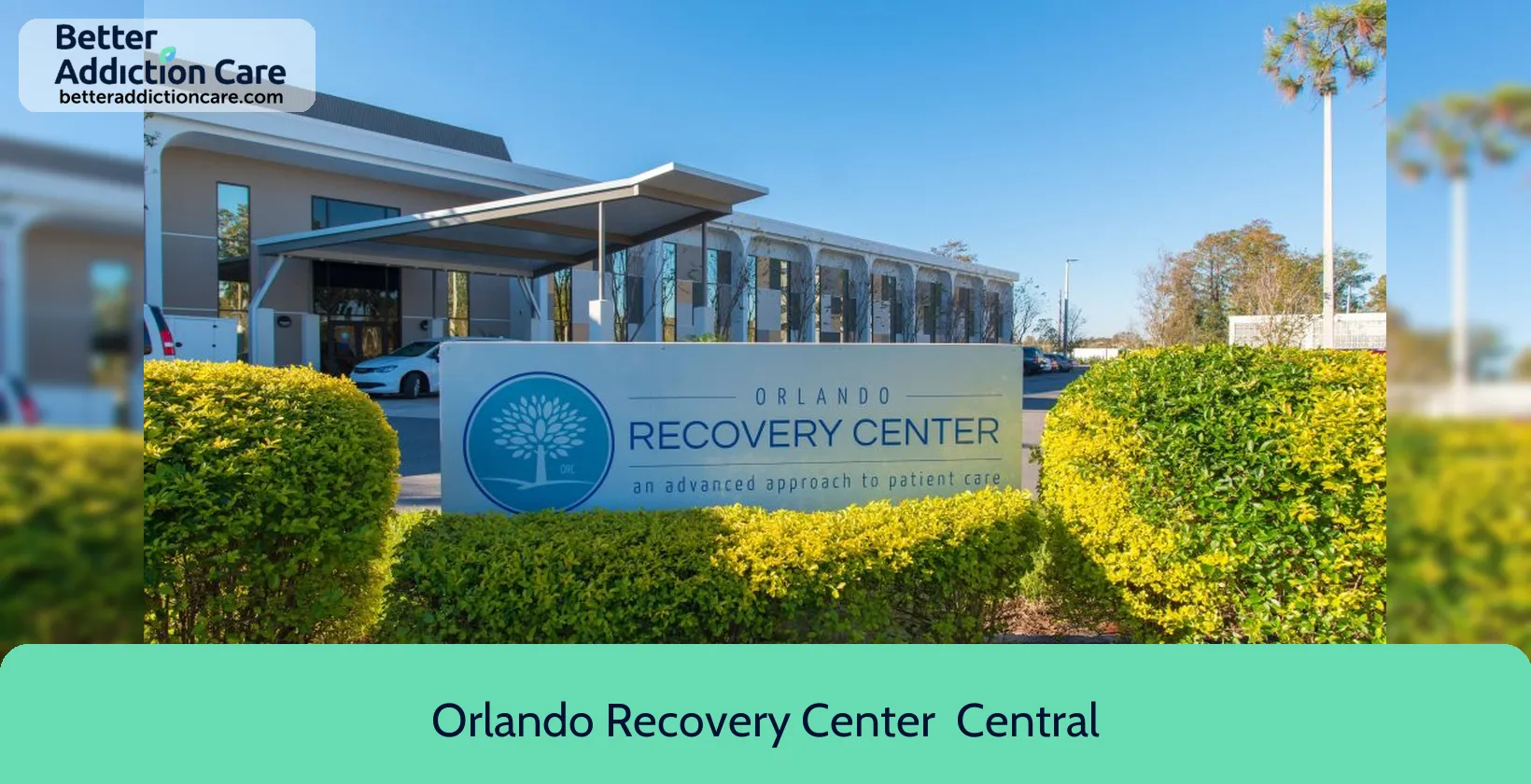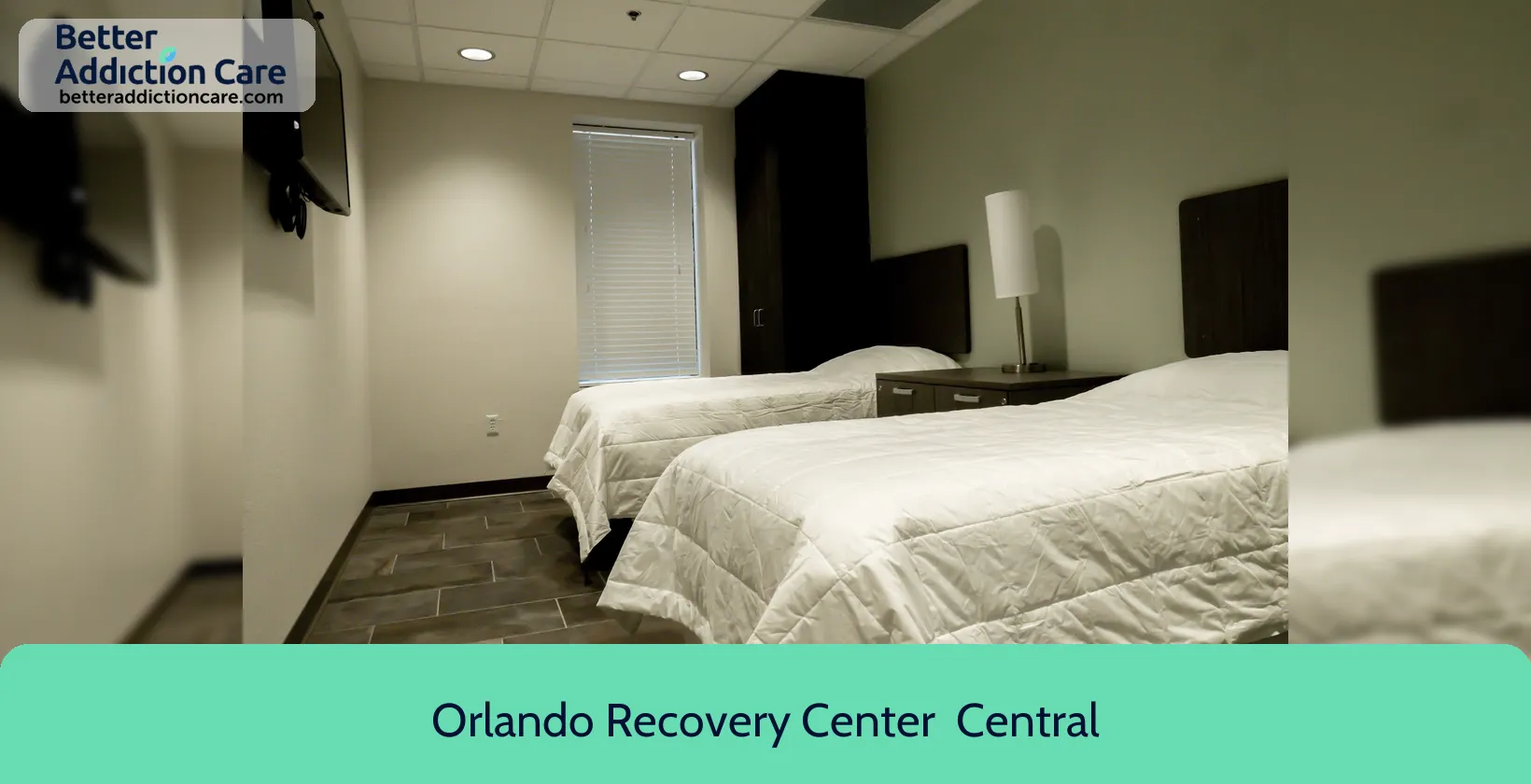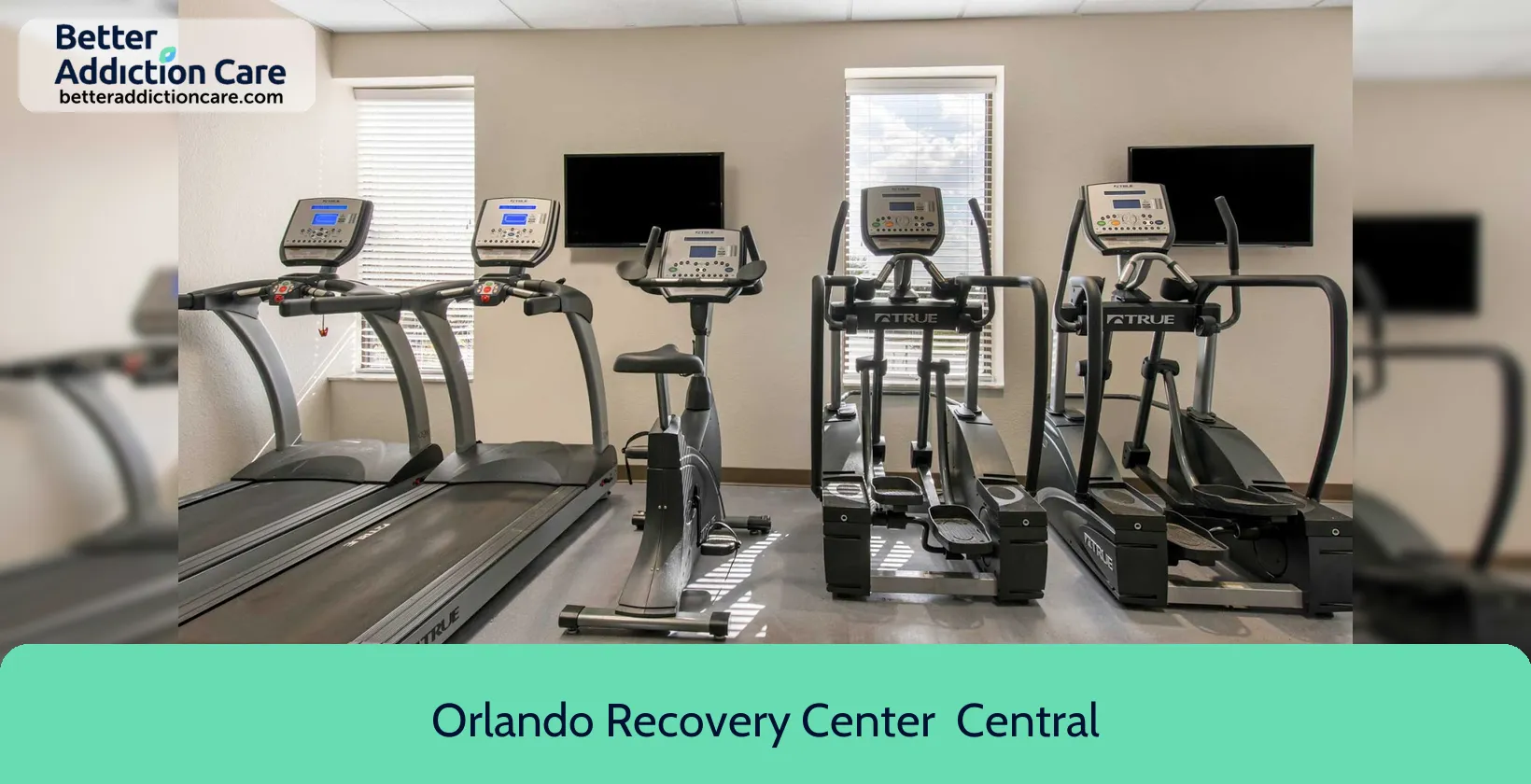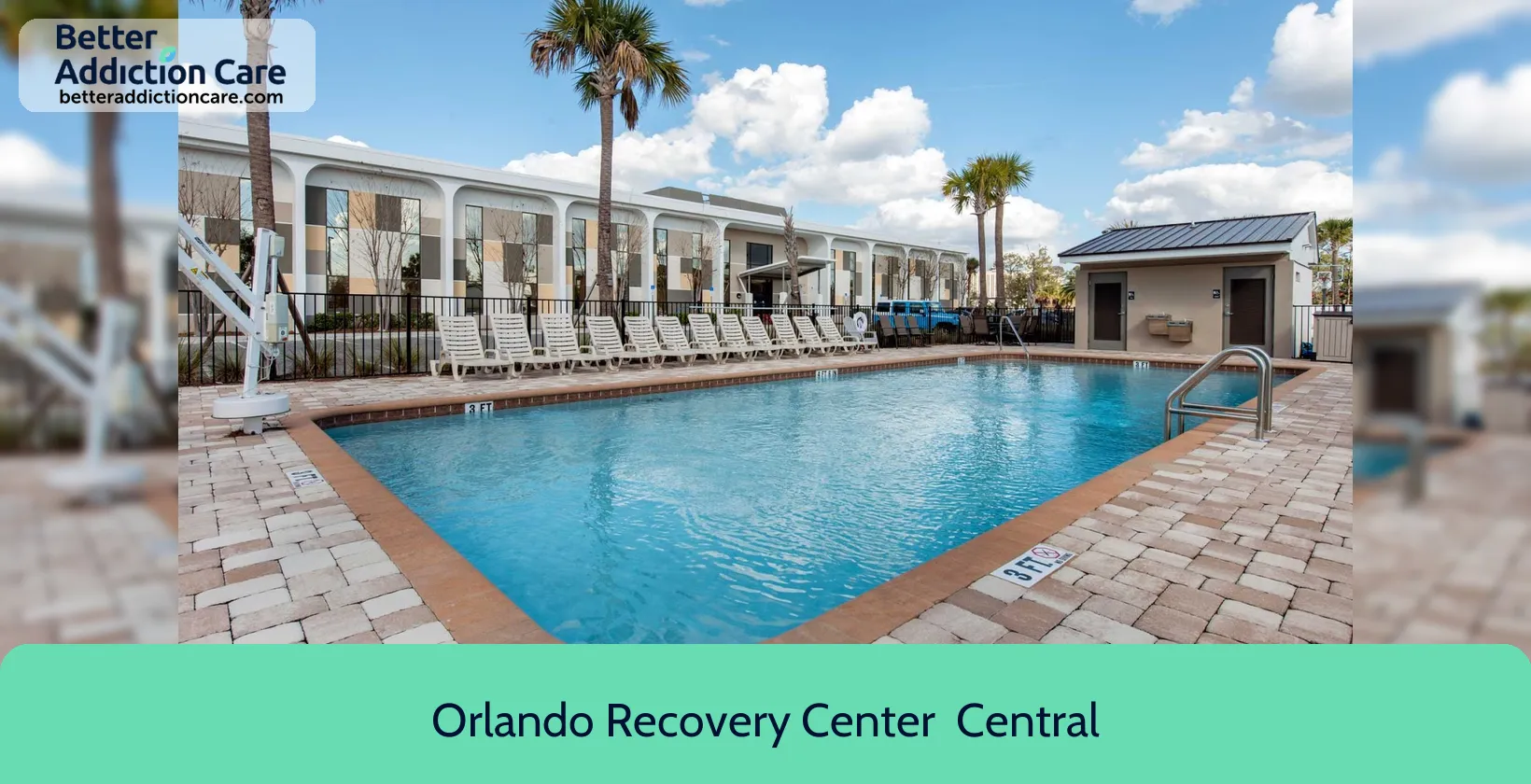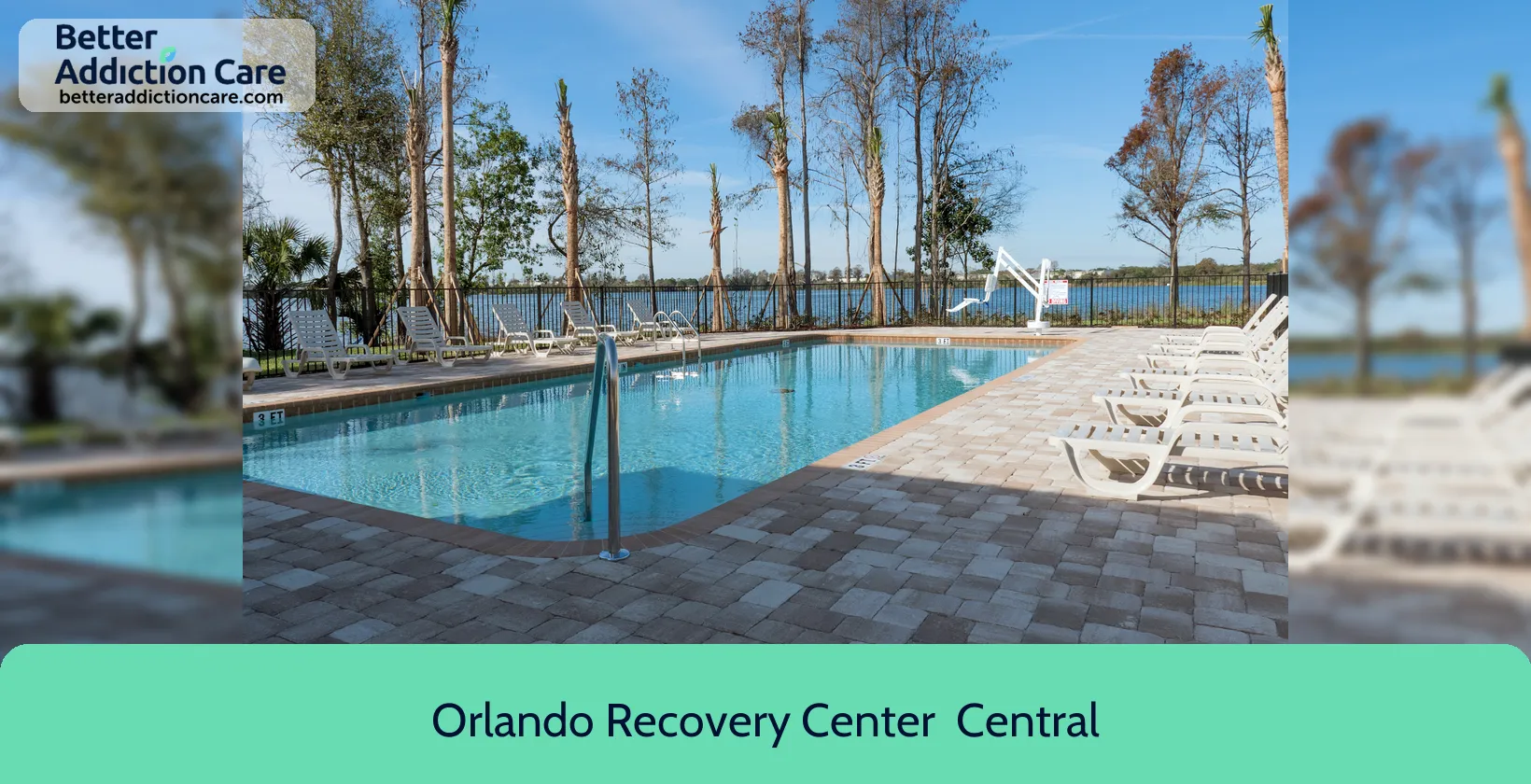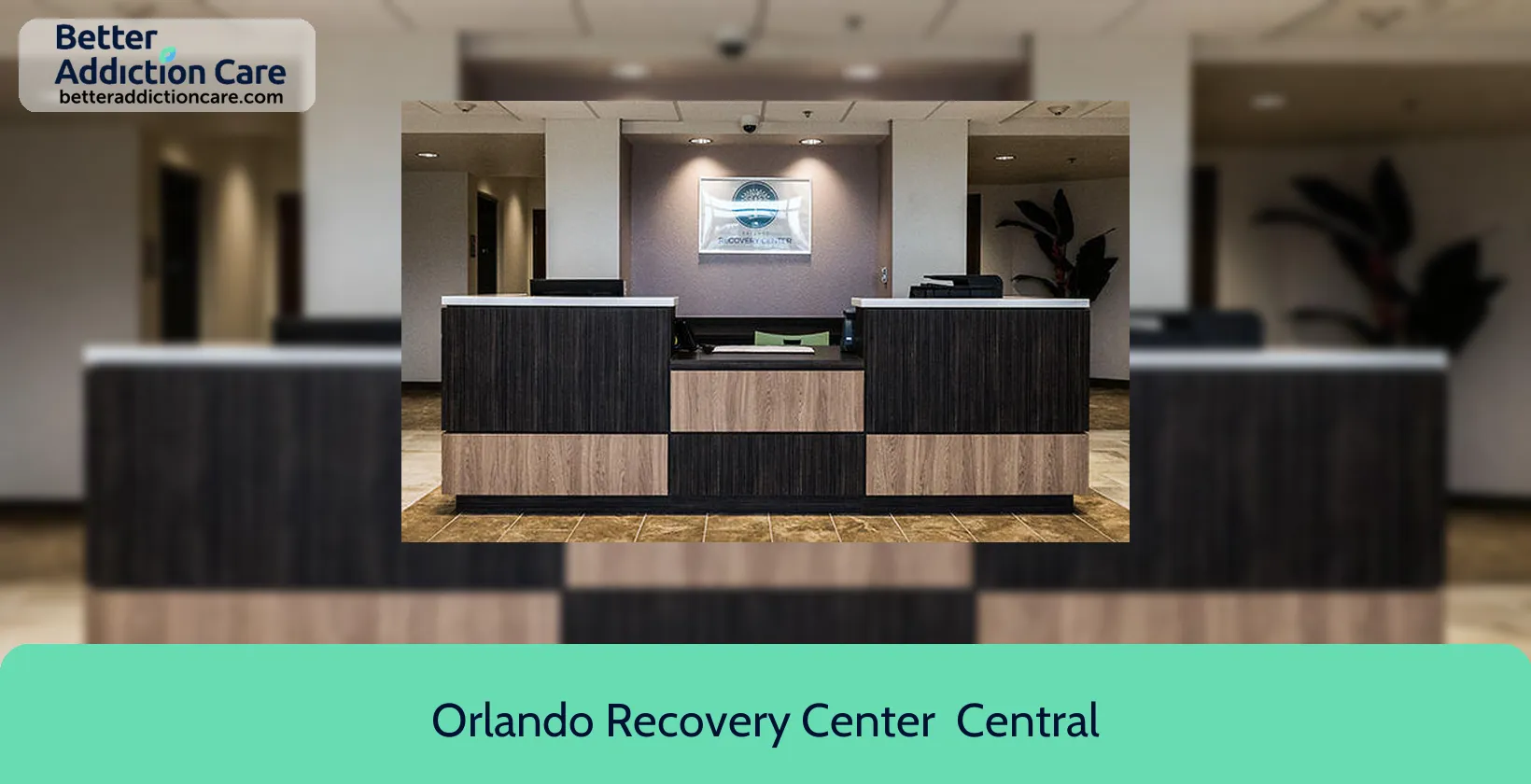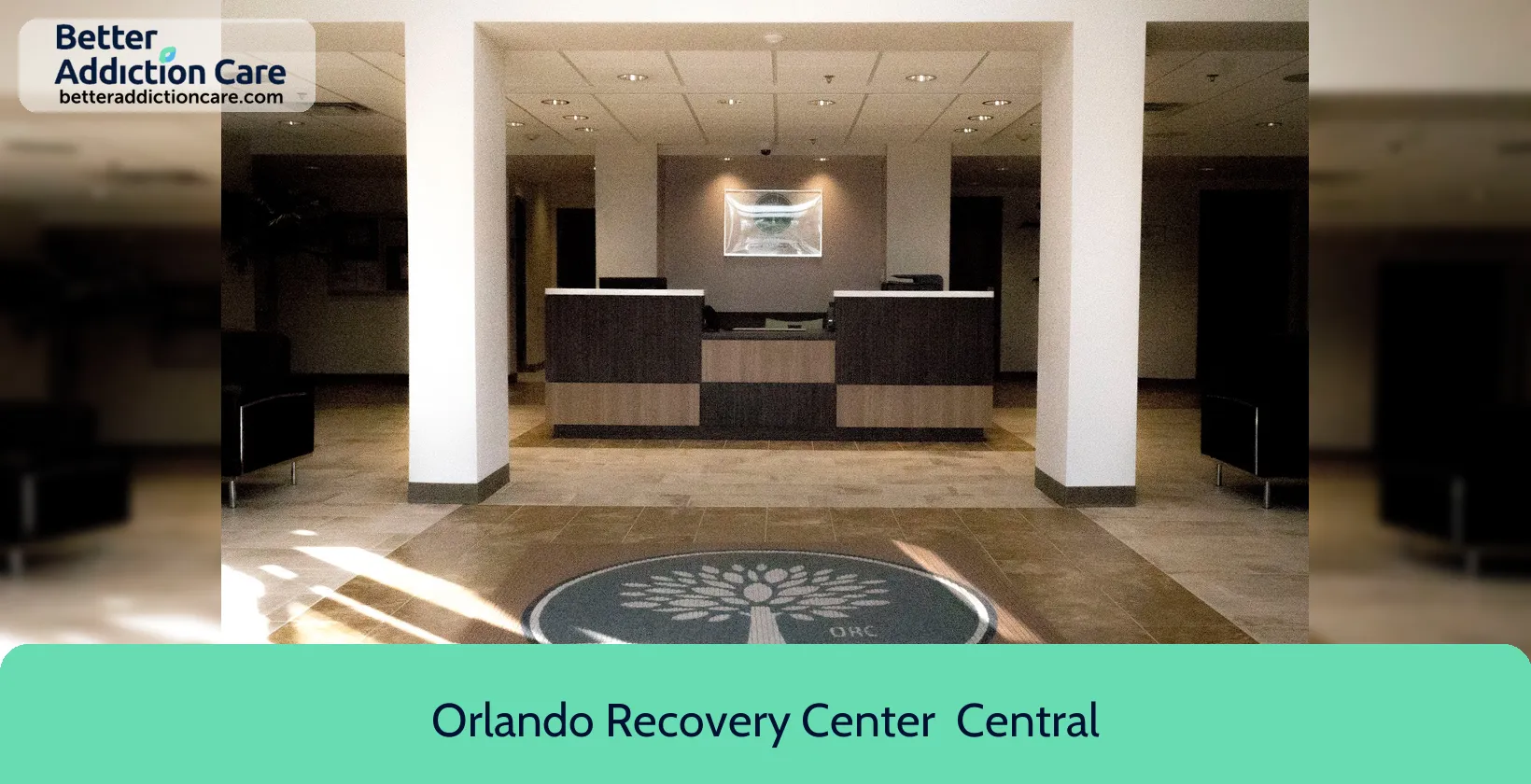Orlando Recovery Center - Central Florida Detox
Overview
Orlando Recovery Center Drug and Alcohol Rehab, located in Orlando, Florida, is a premier recovery center dedicated to providing high-quality care for adults seeking treatment for addiction and co-occurring disorders. The center offers a comprehensive range of services, including detox, inpatient care, and aftercare, all tailored to meet the unique needs of each individual.
Upon arrival, clients undergo a thorough assessment, leading to the development of a personalized care plan designed to support their recovery journey. The programs at Orlando Recovery Center are rooted in evidence-based practices and holistic approaches, ensuring that clients receive expert medical care alongside individual, group, and holistic therapy sessions.
The facility itself is a standout feature, providing a clean and comfortable environment where clients can focus on their healing. Amenities include a fitness center, swimming pool, volleyball and basketball courts, and a recreational room. These facilities offer clients the opportunity to explore new sober activities, aiding in relapse prevention while fostering connections with peers. Nutritious meals and snacks are also provided, promoting overall physical health as part of the recovery process.
In addition to traditional therapies, Orlando Recovery Center places a strong emphasis on mindfulness practices, offering yoga, art, and music therapy. These therapeutic activities help clients discover new ways to express themselves and cope with life’s challenges, nurturing the mind, body, and soul.
Orlando Recovery Center Drug and Alcohol Rehab is committed to the belief that every adult has the potential to heal from addiction. By offering a range of rehab programs for substance abuse and co-occurring mental health conditions in a safe and supportive environment, the center ensures that clients receive the compassionate care they deserve. The facility is fully staffed with medical and clinical professionals who are dedicated to guiding each client towards lasting recovery.
Serving the Orlando and greater Central Florida community, Orlando Recovery Center is a 93-bed facility located just outside downtown Orlando, and only minutes from the Orlando International Airport. Outpatient care is available at their sister facility in Maitland, Florida.
Orlando Recovery Center - Central Florida Detox at a Glance
Payment Options
- Cash or self-payment
- Private health insurance
- Monthly
- Self-pay options
- Sliding scale payment assistance
Assessments
- Screening for tobacco use
- Comprehensive mental health assessment
- Comprehensive substance use assessment
- Interim services for clients
- Screening for substance use
Age Groups
- Seniors or older adults
- Young adults
- Adults
Ancillary Services
- Case management service
- Suicide prevention services
- Early intervention for HIV
- Mental health services
- Social skills development
Highlights About Orlando Recovery Center - Central Florida Detox
8.25/10
With an overall rating of 8.25/10, this facility has the following balanced range of services. Treatment Options: 8.91/10, Drug Rehab and Detox: 8.77/10, Alcohol Rehabilitation: 8.00/10, Insurance and Payments: 7.33/10.-
Treatment Options 8.91
-
Drug Rehab and Detox 8.77
-
Alcohol Rehabilitation 8.00
-
Insurance and Payments 7.33
Accreditations
SAMHSA certification for opioid treatment program (OTP):
SAMHSA's Opioid Treatment Programs (OTP) accreditation is a prestigious recognition that signifies a program's compliance with stringent standards and guidelines established by the Substance Abuse and Mental Health Services Administration (SAMHSA). This accreditation demonstrates an OTP's commitment to providing high-quality, evidence-based care for individuals struggling with opioid use disorder (OUD). It serves as a trusted symbol of accountability and excellence, assuring patients, families, and communities that the OTP offers safe, effective, and comprehensive treatment options for OUD.
The Joint Commission:

The Joint Commission accreditation for addiction and behavioral health is a prestigious recognition signifying a facility's commitment to delivering high-quality care and safety for individuals dealing with substance abuse and mental health issues. It involves rigorous evaluations and assessments, ensuring patients receive evidence-based treatment and exceptional care. This accreditation demonstrates a facility's dedication to continuous improvement and ethical practices, building trust among patients and healthcare professionals seeking top-tier addiction and behavioral health services.
Effective date: 08/11/2016
Registration: 588331
State department of health:

Government agencies issue State Licenses, granting permission to rehabilitation organizations to conduct their business operations lawfully within specific geographic regions. Generally, the particular rehabilitation programs offered by a facility and its physical location dictate the necessary licenses needed for legal operation.
LegitScript:

The LegitScript Accreditation signifies an organization's commitment to ethical and high-quality care in the field of addiction treatment and behavioral health. This accreditation allows treatment providers to be included in Google's network, ensuring compliance with HIPAA privacy regulations.
NAATP:

The NAATP accreditation is a recognized addiction and behavioral health standard. This accreditation signifies that a treatment facility or program has met specific criteria and standards set by NAATP, demonstrating a commitment to providing quality care and services to individuals seeking treatment for addiction and behavioral health issues. Facilities and programs accredited by NAATP are evaluated on their adherence to established best practices, ensuring that clients receive comprehensive, evidence-based care to support their recovery journey.
Treatment At Orlando Recovery Center - Central Florida Detox
Treatment Conditions
- 24-Hour Clinical Care
- Alcoholism
- Mental health treatment
- Substance use treatment
- Co-occurring Disorders
Care Levels
- Hospital inpatient treatment
- Outpatient
- Short-term residential
- Residential detoxification
- Outpatient methadone/buprenorphine or naltrexone treatment
Treatment Modalities
- Cognitive behavioral therapy
- Telemedicine/telehealth therapy
- Substance use disorder counseling
- Trauma-related counseling
- Smoking/vaping/tobacco cessation counseling
Ancillary Services
Additional Services
- Pharmacotherapies administered during treatment
- Housing services
- Breathalyzer or blood alcohol testing
Special Programs
- Clients with co-occurring mental and substance use disorders
- Veterans
- Active duty military
- Members of military families
- Clients with HIV or AIDS
Get Help Now
Common Questions About Orlando Recovery Center - Central Florida Detox
Contact Information
Other Facilities in Orlando

7.28

6.96

6.65

6.59

6.92

7.05

7.07

7.13
DISCLAIMER: The facility name, logo and brand are the property and registered trademarks of Aspire Health Partners - Princeton Plaza, and are being used for identification and informational purposes only. Use of these names, logos and brands shall not imply endorsement. BetterAddictionCare.com is not affiliated with or sponsored by Aspire Health Partners - Princeton Plaza.
